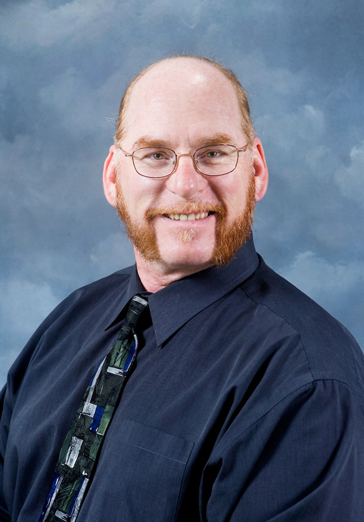MSU rehabilitation counseling program helps meet demand for specialized professionals
Contact: Paige Watson

STARKVILLE, Miss.—Mississippi State Associate Professor Charles Palmer spent more than two decades as a mental health counselor before a motorcycle accident caused him to become a client in rehabilitation counseling. For the last 18 years, Palmer has been helping MSU graduate students make careers out of helping others also in need of rehabilitation.
As a Vietnam veteran, Palmer looked for work after returning to the U.S. from his military service, and he became a prison counselor for inmates with substance abuse problems. Palmer said the role of any counselor is to listen to people and help them communicate, both with themselves and others, in order to become more productive.
When his 1990 accident gave him the experience of rehabilitation counseling from a client’s perspective, it changed his career trajectory. Years later, the University of Arkansas doctoral graduate is still passionate about preparing master’s-level students to fill a growing demand for professionals in this specialized field.
U.S. News and World Report ranks MSU in the Top 25 among the best graduate schools for rehabilitation counseling. Housed in the College of Education’s Department of Counseling, Educational Psychology and Foundations, rehabilitation counseling is one of four counseling concentrations. Others include clinical mental health counseling, school counseling and student affairs.
“The preparation for rehabilitation counseling is similar to mental health counseling, except for some additional specialized courses in the focus area of rehabilitation,” explained Palmer, program coordinator since 2008.
Rehabilitation counselors work with clients who have a variety of physical, cognitive or emotional impairments. Palmer said issues can range greatly, but the goal of the counselor is to help clients cope and accommodate for impairments they face to become more productive and independent, as well as achieve improved employment outcomes.
Palmer and other MSU program faculty are esteemed among their professional peers, with Palmer having served as the president of the National Rehabilitation Counseling Association in 2008 and on the board of directors of the Council on Rehabilitation Education, known as CORE.
Master’s students in the MSU program may benefit from a $931,000 grant funded by the U.S. Department of Education’s Rehabilitation Services Administration. Funded as one of DOE’s Long-Term Training Projects, the grant covers tuition and provides a monthly stipend for students who commit to work in the rehabilitation field after graduation and serve the Mississippi Department of Rehabilitation Services as part of their graduate program.
To be dispersed over a five-year period, the grant helps meet requirements of the federal Comprehensive System of Personnel Development by encouraging professionals to join the field of rehabilitation counseling. The goal is to help ensure both state and federal programs have available, well-trained counselors in sufficient numbers.
Palmer said the field always has had more jobs available than qualified professionals to fill these positions. Many of MSU’s graduates work in Mississippi, but other program alumni are employed all over the U.S., he said.
MDRS and MSU have been collaborating for two decades, with many students enrolling in the MSU program already employed with the state and choosing to pursue higher-level qualifications. The nationally accredited graduate program includes a 48 credit-hour rehabilitation concentration, which students typically complete in five semesters. Nine of their credit hours involve direct field experiences supervised by MDRS professionals and university faculty members, who provide students with “real life” vocational rehabilitation experiences.
“There’s a strong working relationship between the faculty of MSU’s vocational rehabilitation counselor training program and personnel of the Mississippi Department of Rehabilitation Services,” Palmer said.
In addition to MDRS, MSU students often have field experiences with agencies such as Community Counseling Services, Veterans Administration and Social Security Administration, among others.
Palmer said the program has an excellent record of success, and a previous DOE grant supported about 30 MSU graduate students from 2010-15, with more than 80 percent filling positions that satisfied the payback requirement associated with the stipend and tuition support. Students who benefit from the grant but do not work in the rehabilitation counseling field after graduation agree to pay the grant benefits back, similar to a cash loan.
For more on rehabilitation training at MSU, visit www.cep.msstate.edu/programs/grad/rehab.php or contact Palmer at 662-325-7917 or cpalmer@colled.msstate.edu.
MSU is Mississippi’s leading university, available online at www.msstate.edu.